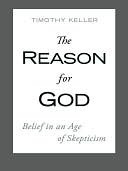More on this book
Community
Kindle Notes & Highlights
Read between
July 12 - July 17, 2024
If you have a God great and transcendent enough to be mad at because he hasn’t stopped evil and suffering in the world, then you have (at the same moment) a God great and transcendent enough to have good reasons for allowing it to continue that you can’t know. Indeed, you can’t have it both ways.
In short, the problem of tragedy, suffering, and injustice is a problem for everyone. It is at least as big a problem for nonbelief in God as for belief. It is therefore a mistake, though an understandable one, to think that if you abandon belief in God it somehow makes the problem of evil easier to handle.
So, if we embrace the Christian teaching that Jesus is God and that he went to the Cross, then we have deep consolation and strength to face the brutal realities of life on earth. We can know that God is truly Immanuel—God with us—even in our worst sufferings.
This is the ultimate defeat of evil and suffering. It will not only be ended but so radically vanquished that what has happened will only serve to make our future life and joy infinitely greater.
We cannot consider a group exclusive simply because it has standards for its members.
But we should not criticize churches when they maintain standards for membership in accord with their beliefs. Every community must do the same.
The love of Christ constrains. Once you realize how Jesus changed for you and gave himself for you, you aren’t afraid of giving up your freedom and therefore finding your freedom in him.
What if, however, the essence of Christianity is salvation by grace, salvation not because of what we do but because of what Christ has done for us? Belief that you are accepted by God by sheer grace is profoundly humbling. The people who are fanatics, then, are so not because they are too committed to the gospel but because they’re not committed to it enough.
A life not centered on God leads to emptiness. Building our lives on something besides God not only hurts us if we don’t get the desires of our hearts, but also if we do.
The Christian’s identity is not based on the need to be perceived as a good person, but on God’s valuing of you in Christ.
Jesus was the most morally upright person who ever lived, yet he had a life filled with the experience of poverty, rejection, injustice, and even torture.
Cycles of reaction and retaliation can go on for years. Evil has been done to you—yes. But when you try to get payment through revenge the evil does not disappear. Instead it spreads, and it spreads most tragically of all into you and your own character.
Forgiveness means bearing the cost instead of making the wrongdoer do it, so you can reach out in love to seek your enemy’s renewal and change. Forgiveness means absorbing the debt of the sin yourself. Everyone who forgives great evil goes through a death into resurrection, and experiences nails, blood, sweat, and tears.
Rather, this is a God who becomes human and offers his own lifeblood in order to honor moral justice and merciful love so that someday he can destroy all evil without destroying us.
When Jesus suffered for us, he was honoring justice. But when Jesus suffered with us he was identifying with the oppressed of the world, not with their oppressors.
Sometimes people approach me and say, “I really struggle with this aspect of Christian teaching. I like this part of Christian belief, but I don’t think I can accept that part.” I usually respond: “If Jesus rose from the dead, then you have to accept all he said; if he didn’t rise from the dead, then why worry about any of what he said? The issue on which everything hangs is not whether or not you like his teaching but whether or not he rose from the dead.” That is how the first hearers felt who heard reports of the resurrection. They knew that if it was true it meant we can’t live our lives
...more
If the resurrection of Jesus happened, however, that means there’s infinite hope and reason to pour ourselves out for the needs of the world.
He wants our joy! He has infinite happiness not through self-centeredness, but through self-giving, other-centered love. And the only way we, who have been created in his image, can have this same joy, is if we center our entire lives around him instead of ourselves.
He centers upon us, loving us without benefit to himself.


